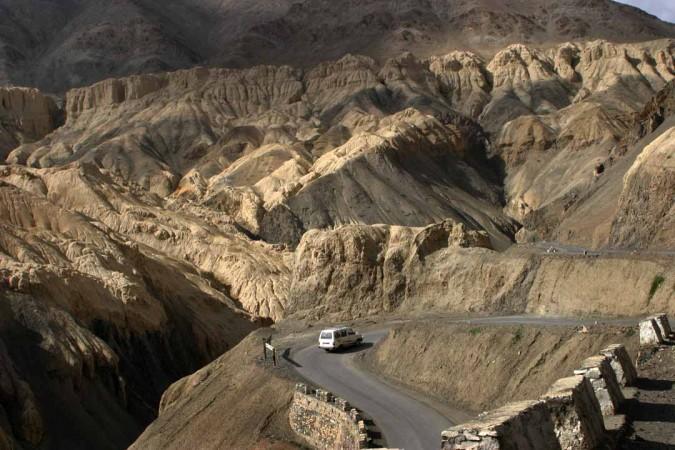
Border areas of Jammu and Kashmir and upper reaches of Himachal Pradesh remain cut off from rest of the country for six months starting October-end when the mountain passes freeze over.
The people living there, including defence personnel, have to thank the hardy drivers, who haul tons of fuel in summer months. This annual stocking of fuel is what helps locals, as well as the Indian soldiers, survive the winter.
Starting mid-May, when the passes reopen, around 1,000 tankers start their journey every day from fuel supply depots in Punjab and Haryana carrying millions of litres of fuel − needed to keep dwellings warm and also kitchens, vehicles and aircraft functional – to storage sites in Ladakh (J&K) and Himachal's Chamba and Lahaul-Spiti.
The stockpiling of fuel during summers not only helps the locals fend off the harsh winters but, crucially, plays a critical role in helping lakhs of soldiers defend the borders against China and Pakistan.
According to Indian Oil, which is the main supplier, the annual stocking of fuel is the only operation of its kind in the world at the moment.
Called Advance Winter Stocking (AWS), Indian Oil says that it is bigger than the Berlin Airlift in terms of tonnage delivered.
AWS calls for lots of planning, co-ordination between different government agencies and out of the box logistics solutions because the weather is unpredictable and terrain treacherous. However, it is the manpower that makes the whole exercise a success.
The resilience shown by oil company executives manning depots in remote areas, cut off from their families, and tanker drivers, who soldier on despite crumbling mountain roads, snow and monsoon, is what makes this endeavour a success year after year.
"The air is so thin up there that is difficult to breathe and the trucks also struggle because of it. Even though the truck is loaded to 50% capacity, the engine struggles to cope with the shortage of oxygen. Added to this are the wear and tear the uneven and broken roads inflict on the vehicle which hastens breakdowns. Death too isn't far behind on these unpredictable roads. But we still do this route out of love for the country," says a driver in his 50s who has been driving to Leh for the last 17 years.
He added that the trucks are now better and more powerful and roads have improved. However, drivers often get stranded during landslides or breakdowns as there are no habitations enroute and no mobile service. That is the reason two tankers travel together always, he says.

















